Crows can be a real nuisance around a bird feeder, bullying smaller birds and even preying on the smallest. Due to their large appetites and social nature, a crow can call its friends to finish off the seed we lovingly layout quickly. Ever wonder how to keep crows away from bird feeders? There are several crow proof feeders available, but you can also quite easily make a DIY solution.
You want your bird table to attract a beautiful dawn chorus of songbirds to your garden. Despite crows being classified as a songbird, the strangulated croaks of a crow sound more like a hobo has fallen over in your yard than the pretty little ditty you were probably looking for.
Crows show numerous behavioral patterns, effortlessly adapting to almost any habitat. They are found to prefer open areas and agricultural plains with nearby trees for nesting and roosting, though they have been thriving in suburban areas since the 1960s.
Keeping Crows Away from Bird Feeders
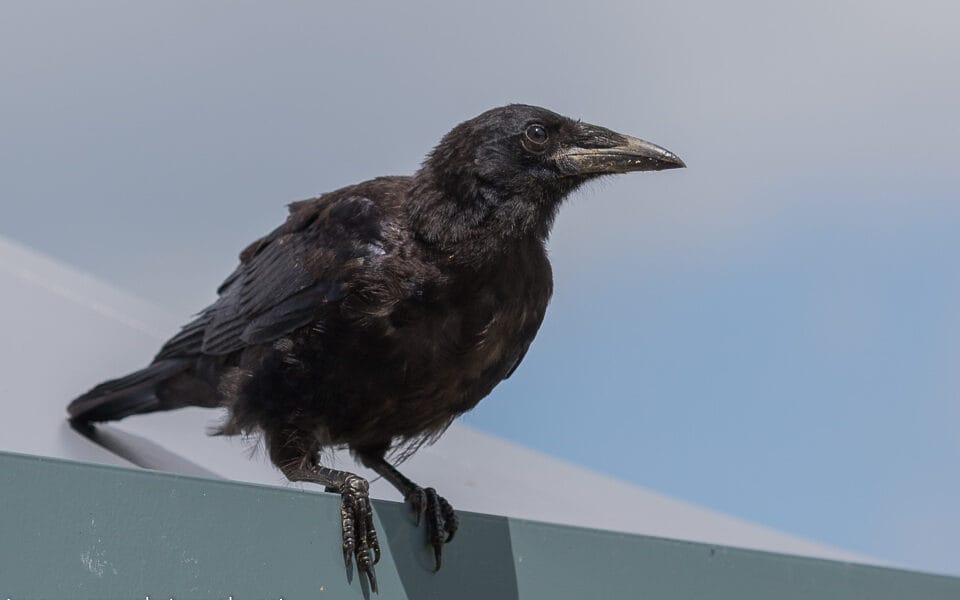
There are a considerable number of ways that people have attempted to tackle this problem, with varying degrees of success. Of course, success can mean different things to different people.
If you have a flock roosting / nesting nearby, success will probably mean reducing the impact they have at your bird table rather than evicting the entire flock. However, if you want to deter the occasional visitor, this should prove much simpler.
Finding a solution to keeping crows away from an agricultural crop is a much bigger problem than merely keeping them off the bird feeder. Sadly, most of the techniques employed by farmers to try and keep crows away from their crops will also keep away the songbirds our bird tables are trying to attract. This is another factor you need to consider when learning how to keep crows away from bird feeders.
Remove Any Trash
Crows and ravens are opportunistic and will eat almost anything, which is why you see them digging through the trash. On the subject – trash cans are the first place to look when deterring crows from your yard. This is a key way to keep crows away from bird feeders.
Ensure you have enough trash cans to hold all of your family’s trash bags. Trash bags are easy for crows, and other critters, to tear open. Exposed food waste is a great invitation, not only to crows but to rats and other undesirables, and is a breeding ground for disease.
If you can, ideally house your trash cans in an enclosed structure and make sure the lids of the trash cans are secure. While crows may struggle to knock over a trash can or remove the lid, domestic cats & dogs, raccoons, etc., can all cause havoc in the trash. If crows cannot access the trash at all or the lids of the trash cans remain securely in place, this is a non-issue.
Remove Shiny Objects
Contrary to popular belief, crows do not collect shiny objects; in fact, hanging shiny objects throughout your yard can help deter them. Crows collect and store small caches of food in several places, usually in trees or even just on the ground.
Author Note: Young crows are inquisitive and will peck and play with inedible objects, mainly practicing manipulating items held in its beak, but sometimes storing items as their parents do with food. Playful captive crows may probably have helped to harbor the myth of collecting shiny valuables.
Protect Your Bird Feeder
There are several different net and mesh products available that you can use to make a DIY solution that allows only small songbirds to access the feeder. Some solutions are available ‘off-the-shelf’ designed to allow only small beaks to access the tasty morsels within.
Others are more complicated, designed with a weight-sensitive perch, that when used by a heavier bird, will close off access to the food.
One of the simplest DIY solutions I have seen came from BBC Gardeners World.
- Using two domed wire hanging baskets, enclose the bird feeder in a sphere.
- Use cable ties to attach the two halves together.
- Install on the table pole or the hanging cable to surround the feeder.
These baskets have the perfect sized spaces for small birds to get at the food, while crows, jays, and other bigger birds will have to make do with any scraps that fall to the ground.
Improving Bird Feeder Location
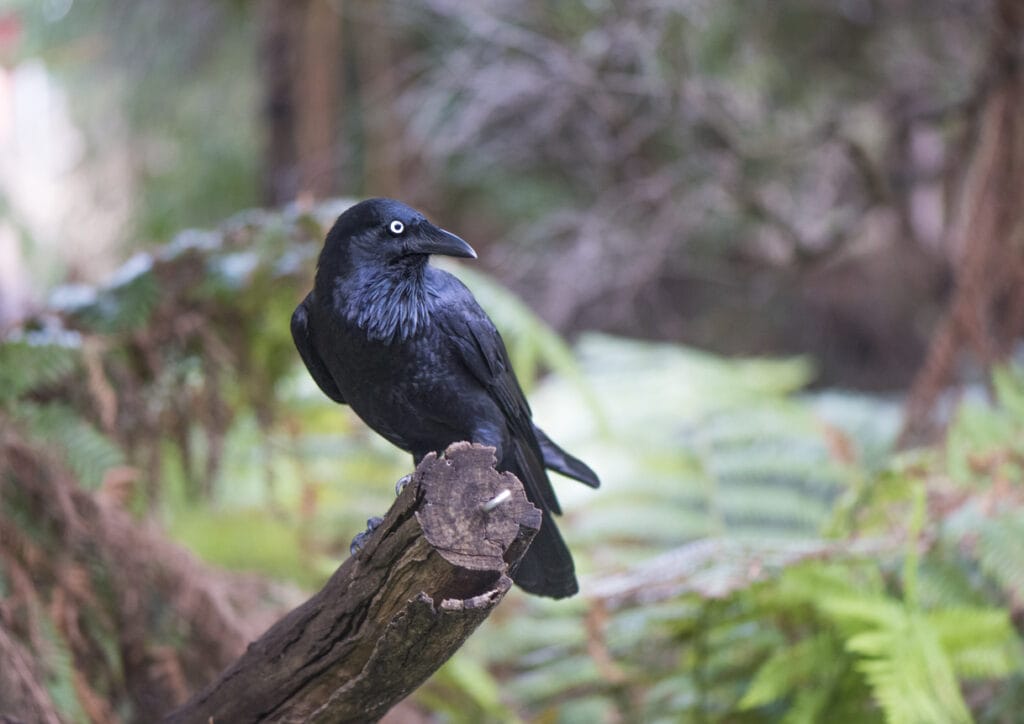
Another way to keep keep crows away from bird feeders is to change their location. It is nice to make a centerpiece of your bird table, but remember, if it is on or over a lawn, then spilled seed will cause weeds to grow through your carefully maintained grass. If you have a hanging feeder, the heavy shade offered by a tree should help prevent the weeds from germinating.
Spilled seed can undo some of the hard work you put into making your feeder crow proof. The mess can also attract rats, mice, chipmunks, squirrels, and other undesirables, so it is best to try and keep the ground surrounding the feeder clean.
Hanging feeders over paved areas make it easy to keep clean but can negatively impact the number of birds that visit the table. Birds don’t naturally expect to find seed growing out of the concrete sidewalk. But in urban areas, birds and humans alike are often given little choice, and once one bird finds your feeding station, more will come.
Scare Them Away Yourself
Crows are very intelligent, perhaps some of the most intelligent animals on the planet, but I will get to that later. Research has shown that Crows are able to recognize human faces and respond differently to different people depending on past experience.
People who act threateningly towards crows are remembered and regarded as hostile, and crows will also warn each other of people they remember to act negatively towards them.
So if you act like a madman when crows are in the yard, waving your arms and throwing obscenities, the crows will remember this and spread the word. If you keep up your hostility, they may just decide it’s easier to leave you in peace, but I don’t recommend this tactic if you have high blood pressure.
This aggression may also backfire. Crows can also be hostile, chasing and diving at perceived threats, even calling in others to help.
Crows Are Intelligent Creatures
The behavior has been recorded, showing that crows gather around their fallen. These groups often call out to one another, whether lamenting their dead or attempting to ascertain how the death occurred, we just can’t know. However, it has been shown that crows hold a far higher reverence for the dead of their own species than others.
This behavior can be used against the Crows, though. Hanging a fake crow upside down by its legs near the bird feeder will give a stark warning to other crows that you mean business. If your garden design idea takes a little less inspiration from the Addams family, we understand if you don’t want to adorn your decorative bird table with a fake Corvus carcass.
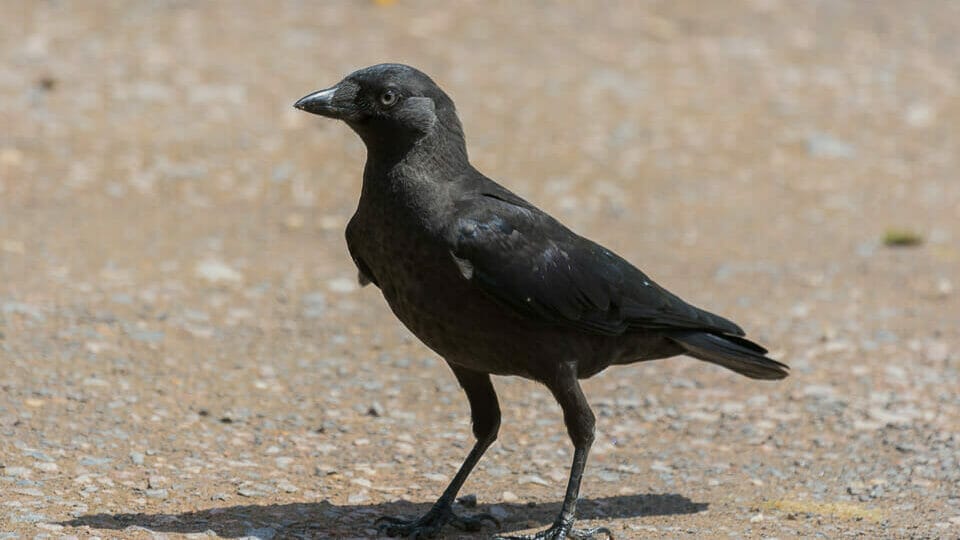
Crow Memory
Researchers wearing caveman masks and holding dead crows in front of a live flock of crows provoked a reaction that led to some surprising information. There was control as well – a researcher wearing a Dick Cheney mask who was present but did not handle any dead crows.
Author Note: Some researchers held dead crows and dead red-tailed hawks (a natural predator of crows). This combination seemed to produce the most significant reaction from the flock as if understanding that which is able to kill our natural predator is a considerable threat.
The flock remembered the caveman masks and would scold and chase people wearing the same masks, and continued doing so for years afterward. Again the Dick Cheney control mask was always present but continued to be regarded as safe by the crows.
Their exceptional memory also allows crows to remember experiences and to pre-plan tasks. This level of intelligence is something that we thought only occurred in humans and apes.
Are Crows Pests?
Crows are widely considered a pest due to their impact on agricultural crops, including nuts, corn, seeds, and fruit. Interestingly, studies have shown that, as omnivores, crows will also eat insects, up to 90% of which are also considered garden and agricultural pests.
So while it is questionable whether they balance their impact on a harvest, they do, at least keep the numbers of other insect pests down.
Crow and Bird Intelligence
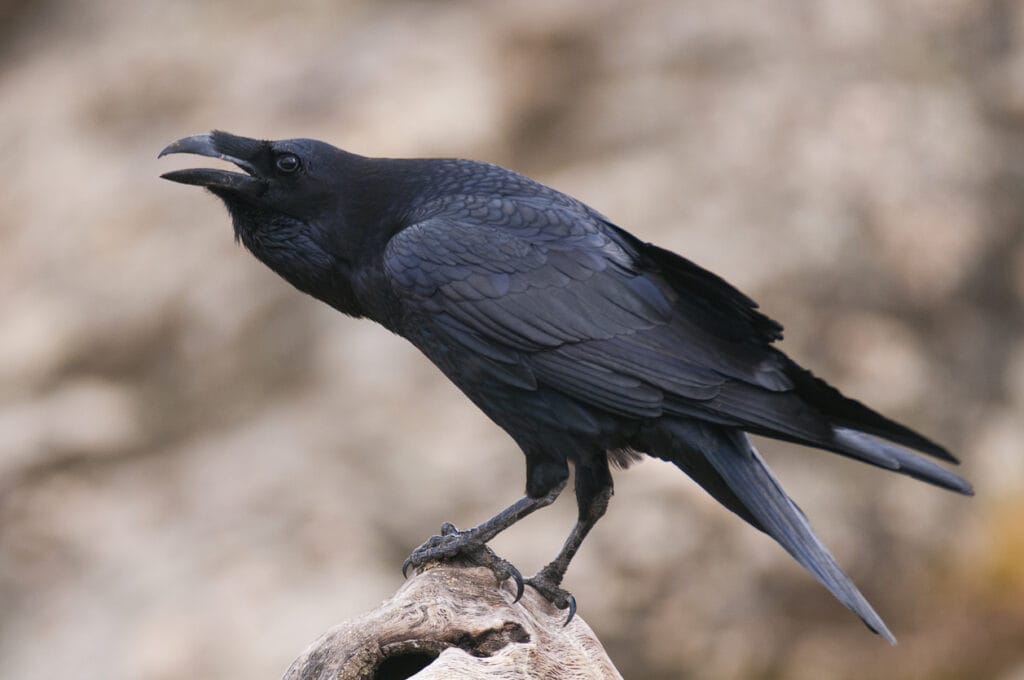
Author Note: For a long time, humanity regarded birds as having little intelligence due to their brains being so small. You may even remember the insult from childhood – “birdbrain,” used when someone has done or said something showing a lack of intelligence.
Caged songbirds were just pretty to look at and pleasant to listen to, and a parrot’s ability to talk was considered novel but not a real display of intelligence.
Recent research has shown that these preconceptions were not just incorrect, but in fact, wildly inaccurate. Birds actually pack more neurons into their tiny nut sized brains than mammals! In an experiment, scientists taught Crows that a particular tool would help them to access a treat.
When selecting tools containing the tool used to access the treat, the crows would recognize the right tool and use it again to get the food. This is a test that monkeys and even young children can have difficulty completing successfully.
Symbolism & Conclusion
Among the first to take advantage of the aftermath of a battle, Crows are heavy with symbolism. As carrion eaters, they are said to be one of the conduits between the lands of the living and the land of the dead.
Greek mythology associated Crows and Ravens with the god Apollo. Said to be an omen of bad luck, the birds were Apollo’s messengers in the physical world.
Other cultures have said the Crow to be a lucky omen, but because it is also associated with the trickster, one must remember that ‘lucky’ alone does not specify good or bad luck.
There is also much positive symbolism pertaining to the crow too, symbolizing life magic, alchemy, intelligence, and fearlessness.
Tenacious, hardy, intelligent, and fearless; whether you view the crow with acceptance or as a pest, these sociable, mastermind problem solvers are deserving of great respect. We hope you enjoyed this article on how to keep crows away from bird feeders.
Fly high friends!
FAQ
There are some types of birdseed that Crows may not be as attracted to such as safflower seeds, sunflower seeds with shells, Nyjer seed, millet and homemade birdseed mixes.
There are several ways to stop crows from eating bird food such as using a feeding station with a weight-sensitive perch, using a feeder with a guard, using a squirrel baffle, using a specific type of feeder, feeding at specific times, moving your feeder around, removing spilled seed, and using crow decoys.
There are several natural ways to repel crows, such as using visual deterrents like reflective or shiny objects, sound deterrents like recordings of crow distress calls or predator calls, planting deterrent plants, encouraging natural predators, using a scarecrow, habitat modification like removing food sources and using netting to cover fruit trees or gardens.
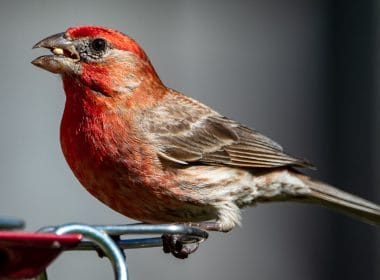

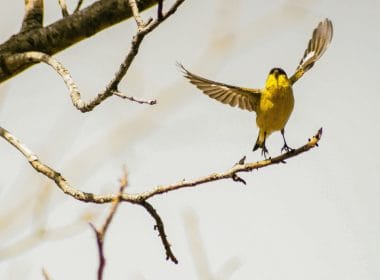

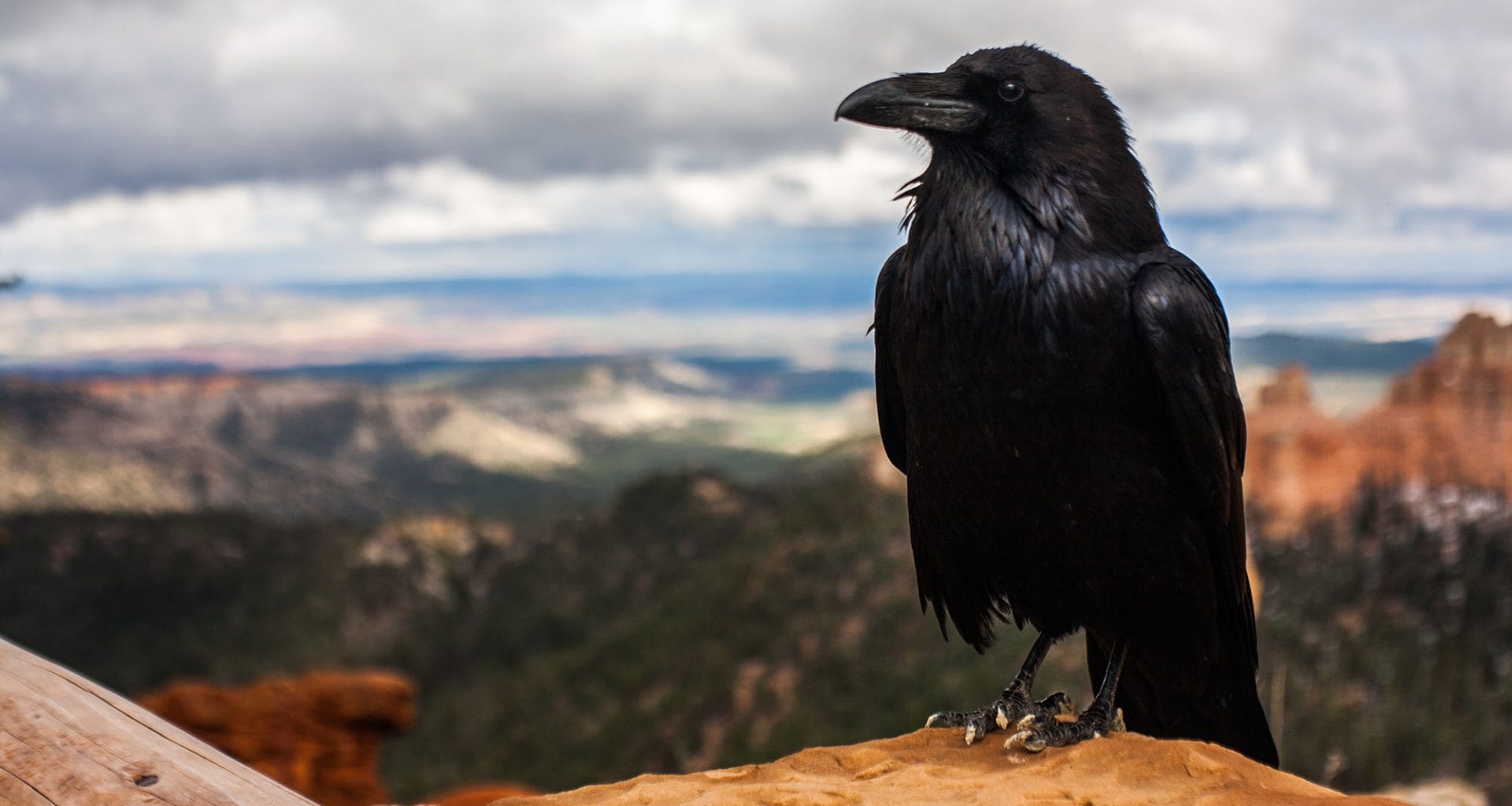
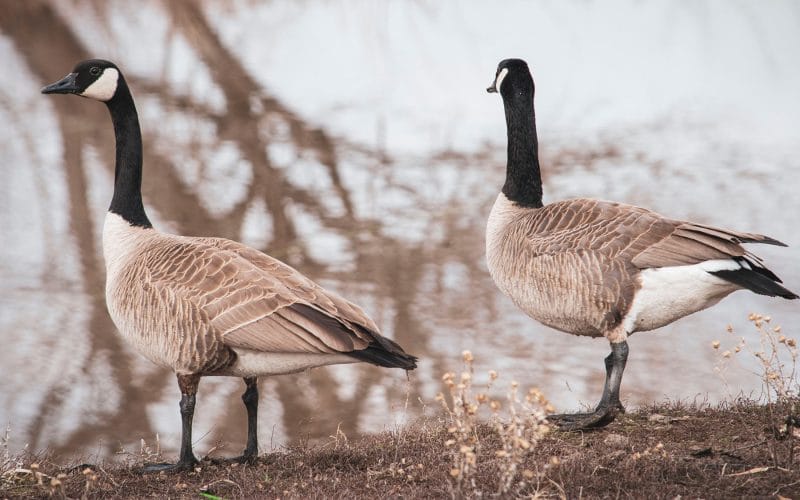
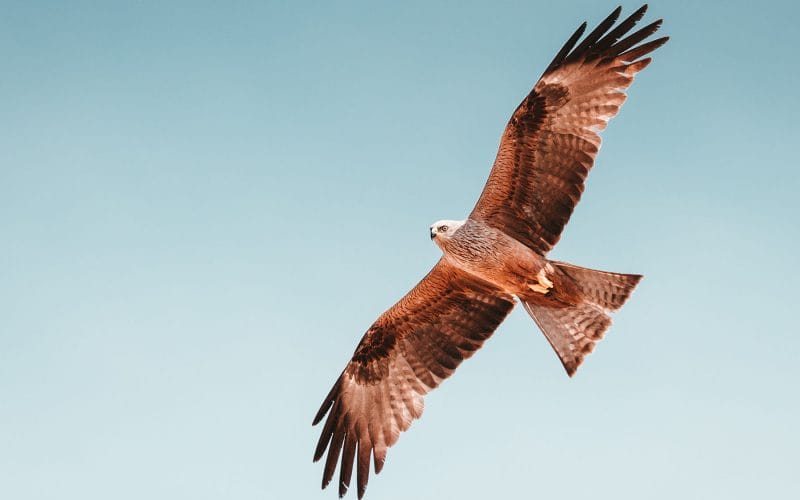

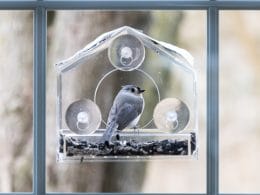
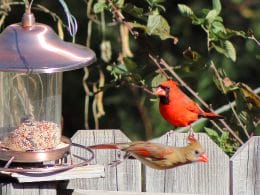
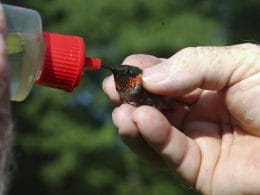
The article contains a lot of useful information. When crows visit my house, I get a headache. They infiltrate the bird feeder and consume all the bird seeds inside, even scaring my beloved pets.
So disappointed and dissatisfied with your conclusion that the only REAL way to keep these CROWS/RAVENS away from my songbirds is to scare them away myself! That’s what I’ll continue to do, with a broom; banging it against the columns on the back porch any yelling “Swooch, Swooch, Swooch”.
No more suet! These pests (crows) ate it all voraciously, and even dragged the wired suet holder off to the next yard!! I’m almost 71 y.o. and barely walk, but I’ll continue to protect my cardinals, chickadees and others until I can’t anymore.
I have loads of crows etc stealing food from my bird feeder station, it’s so disheartening, as I hardly see my little birds, the blackbirds are really quite funny when they bathe also robin, I live very close to woodland so I don’t think I can get rid of them, I have tried smaller feeders and put up shiny objects but nothing works, has anyone else got any bright ideas?